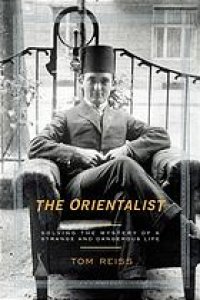
Ebook: The Orientalist: Solving the Mystery of a Strange and Dangerous Life
Author: Said Kurban, Essad (Bey), Reiss Tom, Said Kurban
- Tags: Said Kurban, 1905-1942, Essad (Bey), Authors German, 20th century, Biography, BIOGRAPHY & AUTOBIOGRAPHY, Literary, Authors German
- Year: 2005
- Publisher: Random House Publishing Group
- City: New York
- Edition: 1st ed
- Language: English
- epub
This book traces the life of Lev Nussimbaum, a Jew who transformed himself into a Muslim prince and became a best-selling author in Nazi Germany. Born in 1905 in Baku, at the edge of the czarist empire, Lev escaped the Russian Revolution in a camel caravan. He found refuge in Germany, where, writing under the names Essad Bey and Kurban Said, his remarkable books about Islam, desert adventures, and global revolution, Read more...
Abstract: This book traces the life of Lev Nussimbaum, a Jew who transformed himself into a Muslim prince and became a best-selling author in Nazi Germany. Born in 1905 in Baku, at the edge of the czarist empire, Lev escaped the Russian Revolution in a camel caravan. He found refuge in Germany, where, writing under the names Essad Bey and Kurban Said, his remarkable books about Islam, desert adventures, and global revolution, became celebrated across fascist Europe. But his life grew wilder than his wildest stories. He married an international heiress who had no idea of his true identity--until she divorced him in a tabloid scandal. His closest friend in New York was arrested as the leading Nazi agent in the United States. He was invited to be Mussolini's official biographer--until the Fascists discovered his "true" identity. Under house arrest, he wrote his last book, helped by a mysterious half-German salon hostess, an Algerian weapons-smuggler, and the poet Ezra Pound. As he tracks down the pieces of Lev's deliberately obscured life, Reiss discovers a series of shadowy worlds--of European pan-Islamists, nihilist assassins, anti-Nazi book smugglers, Baku oil barons, Jewish Orientalists--that have also been forgotten. The result is a thoroughly unexpected picture of the twentieth century--of the origins of our ideas about race and religious self-definition, and of the roots of modern fanaticism and terrorism